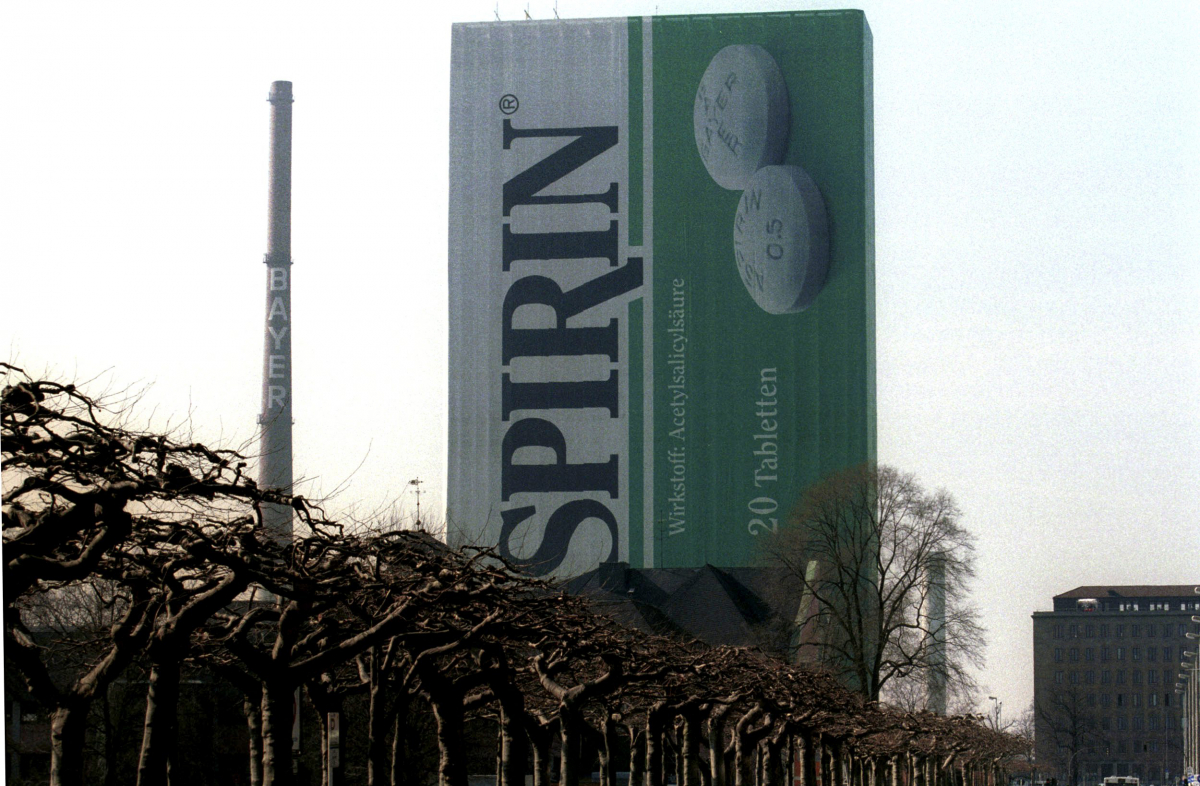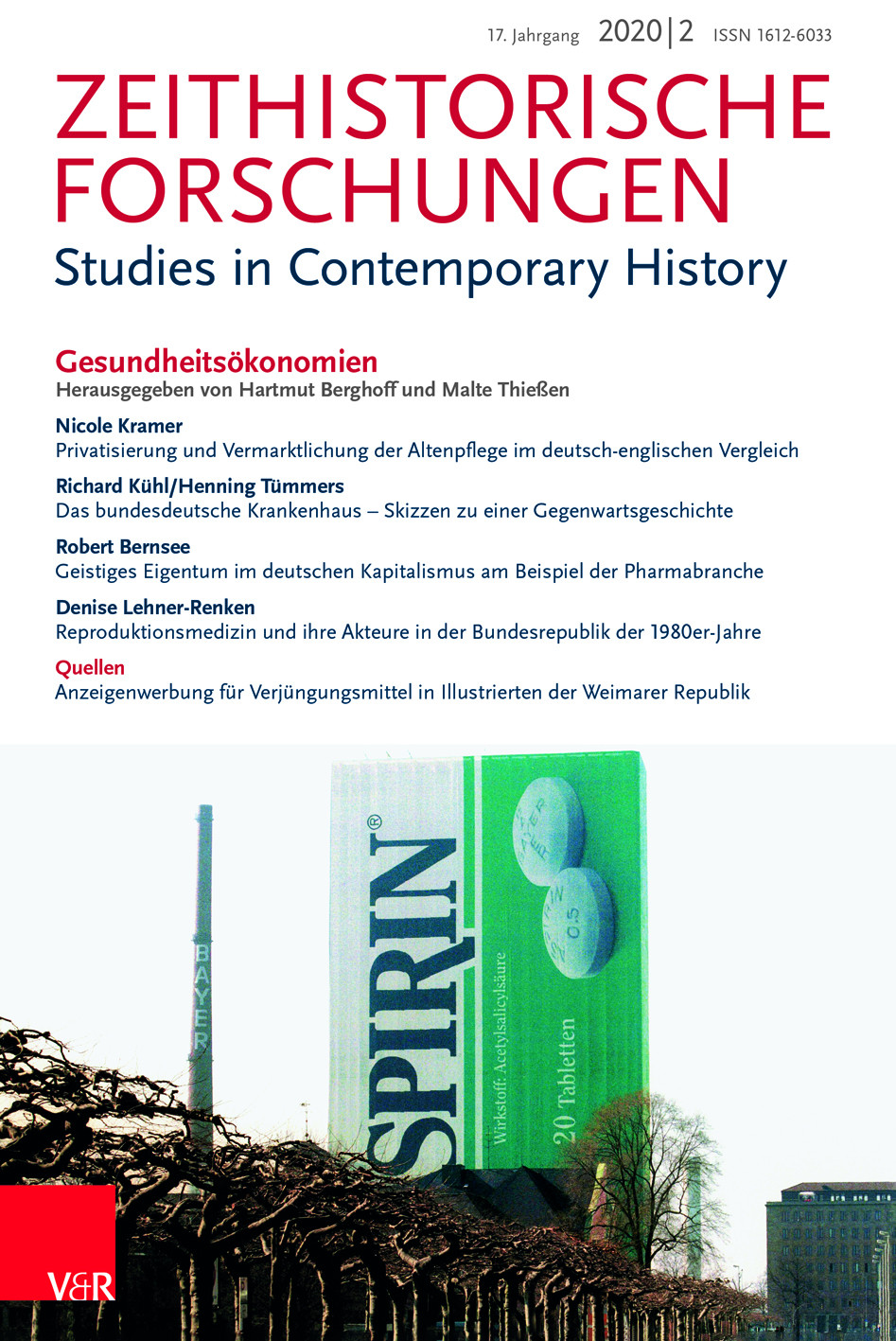Heft 2 / 2020
Aufsätze | Articles
Prekäre Geschäfte
Privatisierung und Vermarktlichung der Altenpflege im deutsch-englischen Vergleich
AbstractDer Beitrag fragt nach den Anfängen und den Triebkräften der Ökonomisierung von Altenpflege in England und in der Bundesrepublik Deutschland. Schon vor den marktschaffenden Reformen der 1990er-Jahre stieg der Anteil der privatwirtschaftlichen Altenpflege deutlich an, wobei häufig Kleinunternehmen und Soloselbstständige dieses Segment der Sozialwirtschaft trugen. Der National Health Service and Community Care Act in England (ab 1990) und die Pflegeversicherung in Deutschland (ab 1995) beschleunigten die Ökonomisierung der Altenpflege auf spezifische Weise: In beiden Ländern entstanden Großunternehmen, die den Kommunalverwaltungen und Pflegekassen als mächtige Verhandlungspartner gegenübertraten. Privatisierung und Bürokratisierung griffen ineinander. Für Deutschland lässt sich zudem feststellen, dass der Bezug von Geldleistungen die Vorstellung von Pflege als bezahltem Wirtschaftsgut verbreitete. Wie weit die Vermarktlichung im deutschen Fall ging, wird indes erst deutlich, wenn man die Schattenwirtschaft der prekär und teils illegal Beschäftigten einbezieht. Der zeithistorische Blick legt offen, wie tief Strukturen der Ausbeutung in die Pflege eingeschrieben sind.
* * *
A Precarious Business. Comparing Privatisation and Marketisation of Long-Term Care in the United Kingdom and the Federal Republic of GermanyThe article explores the beginnings of and driving forces behind the privatisation and marketisation of long-term care. Well before the market-making reforms of the 1990s came into effect, the share of the private for-profit care sector had risen significantly. Initially the sector mainly consisted of small businesspeople, among them many former nurses and care assistants, who wanted to set up their own businesses. The introduction of the National Health Service and Community Care Act (1990) and the German Pflegeversicherung (long-term care insurance, 1995) accelerated the development of the care market in particular ways: In both countries, more and more large care companies entered the field, presenting themselves as strong contracting partners vis-à-vis local authorities and health insurance funds. Thus processes of privatisation and bureaucratisation were closely intertwined. In Germany, cash allowances nourished the idea that care was a service older people had to pay for. Only by looking at the shadow care market, which relies on precarious and sometimes illegal work, are we able to grasp the extent of marketisation in the case of Germany. The insight of contemporary history scholars widens our understanding of the deep-rooted exploitative structures of care.
Auf dem Markt
Das bundesdeutsche Krankenhaus – Skizzen zu einer Gegenwartsgeschichte
AbstractIn den letzten Jahren haben die Klagen über eine »Ökonomisierung« der Krankenhäuser in der Bundesrepublik ihren vorläufigen Höhepunkt erlebt. Anders jedoch, als es die aktuelle Diskussion nahelegt, handelt es sich dabei um keine plötzliche Entwicklung. Zu einem tieferen Verständnis der Gegenwart des bundesdeutschen Krankenhauses ist ein Blick auf den Wandel politökonomischer Leitkategorien nach dem »Strukturbruch« der 1970er-Jahre notwendig. Am Beispiel der im traditionellen Verständnis am Gemeinwohl orientierten Einrichtung Krankenhaus lässt sich die marktförmige Transformation öffentlicher Institutionen sogar paradigmatisch nachvollziehen. Der Aufsatz plädiert dafür, am Begriff »Ökonomisierung« analytisch festzuhalten, verdeutlicht aber auch, dass damit eine schubartige Entwicklung bezeichnet ist, die keineswegs allein die freie Entfaltung von Marktkräften forciert hat. Dafür steht etwa das umstrittene System der »Fallpauschalen«. »Plan« und »Markt«, so wird anhand der Krankenhausreformen der letzten 40 Jahre belegt, bildeten komplementäre Prinzipien einer neuen steuernden Regulierung.
* * *
On the Market. Hospitals in the Federal Republic of Germany – Sketches of a Contemporary HistoryIn recent years, complaints about the ›economisation‹ of hospitals in the Federal Republic of Germany have reached a peak. Contrary to what the current discussion suggests, however, this is not a sudden development. For a deeper understanding of the present state of the German hospital sector, it is necessary to look at the change in key political-economic categories following the ›structural break‹ (Strukturbruch) of the 1970s. Using the hospital as an example, an institution traditionally oriented towards the common good, the market-oriented transformation of public institutions can even be understood paradigmatically. The article argues for an analytical adherence to the term ›economisation‹, but also makes it clear that this refers to a development that progresses by fits and starts, one which did much more than simply accelerate the free development of market forces. The controversial system of a ›flat-rate per case‹ (Diagnosis Related Groups, DRG), for example, is evidence of this. The hospital reforms of the last forty years show that ›plan‹ and ›market‹ were complementary principles of a new regulatory framework.
Pillen und Patente
Geistiges Eigentum im deutschen Kapitalismus am Beispiel der Pharmabranche (1950–2000)
AbstractAnhand der bundesdeutschen Pharmawirtschaft, genauer der Unternehmen Bayer, Hoechst, Merck und Schering, wird gezeigt, dass die Bedeutung von Patentrechten für die Gesundheitsökonomie in der zweiten Hälfte des 20. Jahrhunderts deutlich wuchs: Die Unternehmen erhöhten nicht nur die Anzahl von Patenten, sondern auch die Investitionen in immaterielles Vermögen erheblich. Die Kosten für Forschung und Entwicklung (F&E) überstiegen seit etwa Ende der 1970er-Jahre die Investitionen in Produktionsanlagen. Patente selbst avancierten zum Instrument, um unternehmensseitig den Wettbewerb zu beeinflussen. Das 1968 eingeführte »Stoffpatent« für neue chemische Verbindungen hatte dafür erweiterte Möglichkeiten geschaffen. Patent- und Lizenzabteilungen wurden zu wichtigen Orten unternehmensinterner Entscheidungsfindung. Zudem wurden die Forschungsleistungen hervorgehoben, um den Anstieg der Arzneimittelpreise zu rechtfertigen. Der Aufsatz leistet einen Beitrag zur Beantwortung der Frage, wie und wann die bundesdeutsche Wirtschaft verstärkt zu einer »Intangible Economy« wurde. Er verdeutlicht, wie relevant geistiges Eigentum für die Transformation seit den 1970er-Jahren war – und damit für die Zeitgeschichte des Kapitalismus als Kombination von Vermarktlichung und Verrechtlichung, von globalem Wettbewerb und nationalstaatlicher Regulierung.
* * *
Pills and Patents: Intellectual Property in German Capitalism. The Case of the Pharmaceutical Industry, 1950–2000With respect to the German pharmaceutical industry, specifically Bayer, Hoechst, Merck and Schering, the article shows that the importance of patent rights for the health economy has increased tremendously since the 1950s. The corporations not only registered more patents, but also expanded their investments in intangible assets: Since the 1970s, the costs for research and development (R&D) have surpassed investments in tangible assets, like plants and buildings. Patents became a tool used by the corporations to influence the competition. The introduction of the ›chemical patent‹ in 1968 had created opportunities to use patents this way. Departments for patents and licensing became important players within the decision-making processes of the pharmaceutical corporations. The latter, moreover, tended to emphasise their advances in R&D to justify the rising prices for drugs. The article goes some way towards answering the question of how and when the German economy changed into an ›intangible economy‹. It highlights the importance of intellectual property for the transformation since the 1970s – thus underscoring its relevance for the contemporary history of capitalism as a combination of marketisation and legalisation, of global competition and national regulation.
Zwischen Markt und Moral
Reproduktionsmedizin und ihre Akteure in der Bundesrepublik der 1980er-Jahre
AbstractIn den 1980er-Jahren erweiterte die In-vitro-Fertilisation (IVF) nicht nur die Möglichkeiten der Familienplanung, sondern eröffnete auch neue, rasch expandierende Forschungs- und Geschäftsfelder für Mediziner in der Bundesrepublik. Die Vermarktlichung der menschlichen Reproduktion war Gegenstand eines breiten Aushandlungsprozesses über das technisch Machbare und das ethisch Vertretbare. Der Aufsatz stellt die Reproduktionsmediziner in den Mittelpunkt: Als Anbieter von innovativen Dienstleistungen verfolgten sie neben einem wissenschaftlichen Fortschrittsstreben auch ökonomische Interessen. Über die Medien sowie als Mitglieder von Ethikkommissionen nahmen sie politischen Einfluss. Sie verstärkten die öffentliche Wahrnehmung der Reproduktionsmedizin und waren an der Erstellung von gesetzlichen Richtlinien für ihr Tätigkeitsfeld beteiligt. Die medial geübte Kritik betonte die Gefahren einer technokratisch-politischen Steuerung und mögliche Kontinuitäten zur NS-Zeit. Mit der Verabschiedung des – im internationalen Vergleich restriktiven – Embryonenschutzgesetzes von 1990 kam die Debatte zu einem vorläufigen Ergebnis, war und ist jedoch keineswegs beendet.
* * *
Between Market and Morality. Reproductive Medicine and Its Players in 1980s West GermanyIn the 1980s, in vitro fertilisation (IVF) not only expanded the possibilities of family planning, but also opened up new, rapidly expanding research and business fields for medical professionals in the Federal Republic of Germany. The marketisation of human reproduction was the subject of a broad negotiation process about what was technically feasible and ethically acceptable. The article focuses on reproductive physicians: As providers of innovative services, they pursued both scientific progress as well as economic interests. They exerted political influence through the media and as members of ethics committees. They increased public awareness of reproductive medicine and were involved in drawing up legal guidelines for their field of activity. The criticism voiced by the media emphasised the dangers of technocratic political control and possible continuities with the Nazi era. With the passing of the Embryo Protection Act of 1990 – which is restrictive by international comparison – the debate reached a preliminary conclusion, but was and is by no means over.
Besprechungen | Reviews
Extra: Quellen | Sources
Zitation
Redaktionsschluss
Erweiterte Suche

